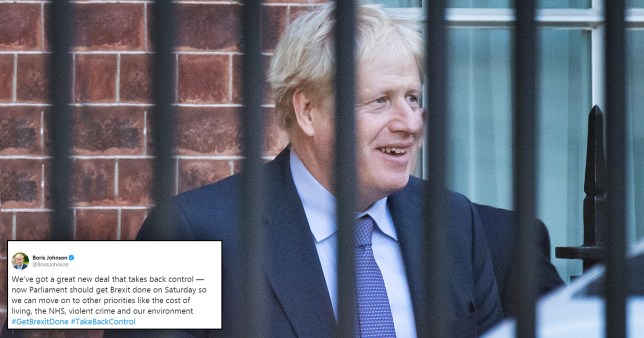British Prime Minister Boris Johnson is still at odds with Parliament over how to break the Brexit impasse as the EU considers his half-hearted request for a delay to the October 31 deadline.
Mr Johnson has endured defeats in Parliament but hopes to turn it around with a majority vote for his new Brexit divorce deal. The numbers are tight and there is a chance he could win.
A vote is possible in the coming days. He also needs to enact the legislation that would make the deal legal.
If he can do that quickly, Britain would either need no extension or a short “technical” extension of weeks, not months.
If Mr Johnson cannot convince Parliament to quickly back the deal, the EU will determine if it grants Britain another extension or sticks to the October 31 date, which would mean a “no-deal” Brexit that many national leaders have been trying to avoid.
The EU is not expected to reveal its answer in the coming days but an extension is considered to be preferred by many of the bloc’s leaders, despite their growing frustration.
Mr Johnson has tried to call a national election for a new Parliament that would support his Brexit strategy.
But the opposition Labour Party and its leader, Jeremy Corbyn, say they will not approve an election until a Brexit extension has been received.
If the EU grants the extension Mr Johnson has requested, an election may take place in the next few months, with the prime minister campaigning on a promise to deliver Brexit and blaming Parliament for blocking it.
It is possible that no clear winner would emerge from the election with a majority, so a new Parliament might be as divided as this one.
Mr Johnson complied with a law requiring him to seek a delay to the October 31 deadline, but he followed his request with a letter to EU officials saying he did not really think a delay was a good idea.
That infuriated opponents, who believe he deliberately tried to frustrate the will of Parliament.
Activists who have brought a case against Mr Johnson in Scotland plan to return to court on Monday. The dispute may end up in Britain’s Supreme Court.




